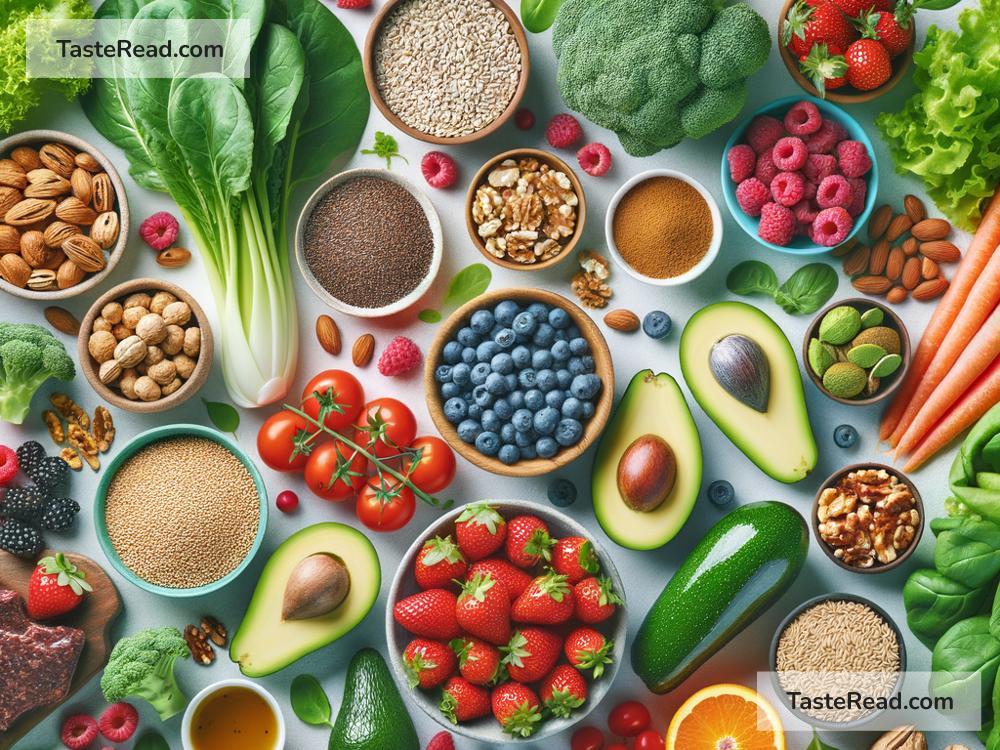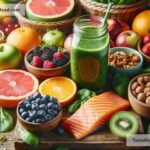Foods for Improving Weight Management: Simple Tips for Better Health
Managing your weight can feel overwhelming, but improving your diet is one of the easiest and healthiest ways to take control. It’s not about starving yourself or following fad diets; it’s about making smart food choices that help your body feel full, energized, and nourished. In this blog, we’ll discuss simple, tasty, and nutritious foods that support better weight management.
Why Food Matters for Weight Management
Your weight is influenced by how many calories you consume and the quality of those calories. Eating nutrient-rich foods allows you to feel satisfied without overeating. Additionally, certain foods can boost metabolism, control cravings, and improve digestion, which makes maintaining a healthy weight simpler.
Now, let’s dive into the types of foods that can help!
1. High-Fiber Foods: Keep You Feeling Full
Fiber-rich foods are your best friend when it comes to weight management. Fiber adds bulk to your meals, which helps you feel fuller for longer and prevents overeating. Additionally, fiber aids digestion and keeps your gut happy.
Some top choices include:
– Fruits: Apples, berries, oranges, and pears are loaded with fiber and natural sweetness.
– Vegetables: Broccoli, carrots, spinach, and cauliflower are low in calories but high in fiber.
– Whole Grains: Oats, quinoa, and brown rice are excellent sources of fiber.
Tip: Swap refined grains (like white bread) for whole-grain options in your meals.
2. Protein-Packed Foods: Build and Repair Your Body
Protein is essential for maintaining muscle strength and keeping cravings at bay. It also takes longer to digest than carbs, which helps you feel full longer. Including enough protein in your meals can reduce snacking on unhealthy foods.
Great protein options include:
– Lean Meats: Chicken breast, turkey, and lean cuts of beef.
– Eggs: A versatile and affordable protein-packed food.
– Plant-Based Protein: Lentils, chickpeas, black beans, and tofu.
– Fish: Salmon, tuna, and mackerel are not only high in protein but also contain healthy fats.
Snack idea: A boiled egg or a handful of roasted chickpeas can keep hunger away.
3. Healthy Fats: Fuel for Your Body
While fats often get a bad reputation, healthy fats are an essential part of weight management. They keep your energy levels steady and help you feel satisfied after meals. The key is to avoid unhealthy trans fats (like those in fried fast food) and focus on natural, nutrient-rich sources.
Healthy fat options include:
– Nuts: Almonds, walnuts, and pistachios make for a great snack.
– Seeds: Chia seeds, flaxseeds, and pumpkin seeds are rich in good fats and fiber.
– Avocado: Creamy and delicious, avocado is an excellent source of healthy fat.
– Olive Oil: Use olive oil for cooking or drizzling over salads.
Tip: Pay attention to portion sizes because healthy fats are calorie-dense.
4. Low-Calorie Snacks: Beat Cravings Without Guilt
Snacking is inevitable, but unhealthy choices can derail your weight-management goals. Instead of grabbing chips or sugary treats, opt for low-calorie and nutrient-dense snacks.
Good options include:
– Vegetable sticks with hummus: Crunchy and satisfying.
– Greek yogurt with berries: A creamy snack high in protein and fiber.
– Popcorn (air-popped): Light but filling, with fewer calories.
– Fruit Salad: Sweet, refreshing, and packed with vitamins.
Keep healthy snacks handy to curb cravings before they lead to binge eating.
5. Hydrating Foods: Stay Full with Water-Rich Choices
Sometimes, your body confuses thirst with hunger, causing you to eat when all you really need is water. Foods with high water content help you stay hydrated while adding very few calories to your diet.
Hydrating foods to enjoy:
– Cucumber: Refreshing and crunchy.
– Watermelon: Sweet and water-rich.
– Zucchini: Versatile and low-calorie.
– Soups: Broth-based soups are filling and hydrating.
Pair these foods with plenty of plain water throughout the day to stay fully hydrated and reduce snacking.
6. Avoid Sugary and Processed Foods
No list about weight management is complete without discussing what to avoid. Foods high in added sugar, artificial ingredients, and unhealthy fats can lead to weight gain, energy crashes, and cravings.
Examples of foods to limit:
– Sodas, sugary drinks, and candies.
– White bread and instant noodles.
– Packaged snacks and fried foods.
Tip: If you’re craving something sweet, opt for fruits like bananas, or try dark chocolate in moderation.
7. Plan Ahead for Success
The best way to stick to healthy eating habits is to plan your meals in advance. When you have a fridge full of nutritious foods and snacks ready to go, you’re less likely to reach for unhealthy alternatives. Cook meals at home whenever possible and experiment with recipes that include the ingredients we mentioned above.
Final Thoughts
Improving your weight management doesn’t mean giving up delicious food—it’s about making mindful choices that support your health. Incorporating fiber, protein, healthy fats, and hydrating foods into your daily routine can make a huge difference. Pair these foods with an active lifestyle, drink plenty of water, and avoid processed snacks.
Small, consistent changes can lead to big results over time. So start today—fill your plate with these nourishing foods and enjoy the journey to better health!


